The common wisdom regarding peanut introduction to children has been to delay until about age three. However, a new study has revealed that much earlier introduction, especially in the case of high-risk children, reduces the incidence of peanut allergies by up to 85 percent.
This updated information includes a few guidelines for both the introduction of and continued exposure to peanuts to children. Following these guidelines can potentially head off the risk of serious allergic reaction in school-age children.
Clinical Evidence
Results from the 2015 LEAP (Learning Early About Peanut Allergy) study offer strong evidence that early introduction of peanuts inhibits the development of peanut allergy in many children. In the study, at-risk infants (children under 12 months old with eczema and/or egg allergy) who were given two grams of peanuts, three times a week, were shown to exhibit significantly fewer incidences of peanut allergy at five years of age compared with kids for whom peanut introduction was delayed or avoided.
The significance of the LEAP study is this: It is the first study to show that early introduction of peanuts to at-risk children significantly reduces the incidence of later development of peanut allergies.
The Guidelines
The LEAP study results indicate that babies should be introduced to peanut foods by 11 months of age, ideally beginning at six months. The guidelines from the NIH National Institute of Allergy and Infectious Diseases divide children into three categories based on the established risk of development of allergies. The categories involve the exhibiting of risk factors from indications of eczema and/or egg allergies.
The NIH recommends that parents consult their pediatrician to determine their child’s risk and sensitivity to peanuts at around four months of age. In addition to these established risk factors, any children with a family history of peanut allergy – even if they don’t exhibit eczema or egg allergy risk factors – should also be considered in regard to peanut allergy risk. Note that this group was not included in the test cases involved in the LEAP study.
How Much?
In the LEAP study, subjects were given two grams of peanuts three times a week. Of course, in a controlled study, results are dependent on consistency, so it is still unknown whether feeding lesser amounts less frequently will have the same results. With this study, it was established that once babies are successfully introduced to peanuts, they should continue to consume them on a regular basis unless some new form of allergic reaction develops. Remember, it is always best to consult with and keep your child’s pediatrician informed of, the introduction of peanuts and ongoing progress.
What Kinds of Peanut Foods Can Babies Eat?
It goes without saying that whole peanuts or peanut butter present a choking hazard to babies. Adding peanut butter to breast milk, formula, pureed foods or fruits is a convenient way to feed. Once solid foods are introduced, children can eat peanut puff-type foods. This makes it easier for busy families to continue with the required peanut-food consumption with convenient foods they can take with them when they are on the go.
Important Considerations
- The guidelines above apply to children who have never eaten peanuts or had an adverse reaction to peanuts.
- If you have already introduced peanut foods with no reaction, your baby is not allergic.
- If any allergic reaction appears (hives, swelling, breathing difficulty), contact your child’s pediatrician or call 911 immediately.
- Note: These guidelines address early intervention in order to assess/avoid the development of peanut allergy and are not for babies with a known peanut allergy. They should never be interpreted as treatment recommendations.
Related Resources:
AAP News and Journals New guidelines detail use of ‘infant-safe’ peanut to prevent allergy
Managing Peanut Allergies Early Introduction of Peanut Foods: Keep It Simple
Kids With Food Allergies Peanut Allergy Prevention: New Guidelines for Early Introduction
If you have any questions or need to schedule an appointment, please give us a call at 912-871-HUGS (4847).


